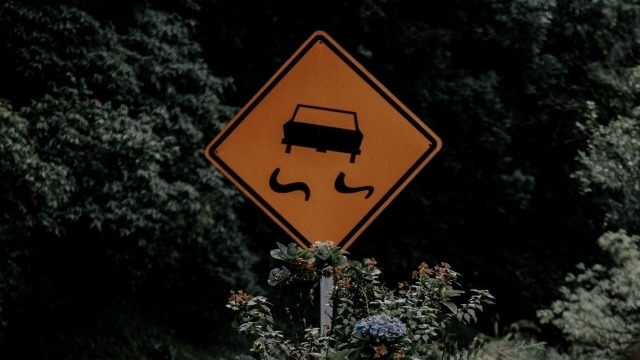Opinion: History's slippery progress myth

By Mark Kenny
A version of this article was originally published by The Canberra Times.
It is generally held that humanity is moving forward. "The arc of the moral universe is long, but it bends toward justice," Martin Luther King Jr assured the oppressed of America and beyond.
This comforting idea casts justice as somehow inevitable, even in the face of the cruellest religious and sectarian hatreds, racial abuse and other inhumanities.
But is it true? Explain this progress to the families and survivors of the recent suicide bombing attack at the Kaj Education Centre in Dasht-e-Barchi in western Kabul, where 35 young women attending a mock exam were senselessly murdered for the shocking crime of trying to be educated.
School attendance for enslaved girls was one of America's moral justifications for intervening in Afghanistan. George and Laura Bush explicitly made it so.
Now the West has abandoned that nation's only consistently non-violent cohort to a ruthless power struggle between the bloodiest of religious male fanatics, the Taliban and ISIS?
Safer then to confine our claimed "progress" to secular Europe where it could be boasted that genocidal territorial warfare was a 20th-century thing.
The absence of state-on-state aggression in that most blood-soaked of continents seemed to prove that history's moral arrow pointed upward.
That was the point of the complex multilateral architecture created in the aftermath of world wars and the decades since - not just the United Nations but the European Union and World Trade Organisation and more.
Yet the vestiges of imperialism and the great power rivalry have adapted also.
Even during the Cold War, the protagonists acted recklessly, blundering into each other's "sphere of influence" as if the nuclear option would never actually be taken (even though America had already used it twice).
America overreached in places near and far such as Vietnam. The Soviets did likewise running aground (as invaders had before them) in the vast ungovernable mountains of Afghanistan.
Even here though, there was some learning as these vainglorious follies seemed to prove that mighty military nations could not simply install puppet regimes, or spread democracy (or communism) per force.
The Eastern Bloc was finished by the late 1980s, and in the middle of that same decade came the massively significant Schengen Agreement to remove border controls from 26-plus European countries.
The creation of an internally borderless Europe (mostly) cemented a new era in Continental co-existence and lent more weight to the arc of history argument. This surely, was moral growth, right?
True, yet with the new century came old - if renovated - vanities. In thrall to the hubris of the neo-cons, America launched ill-fated wars in Iraq and Afghanistan, while Russia, by now a humiliated ex-super-power, enriched a corrupt oligarch class and flailed for lost greatness in Syria, the Crimean peninsula, and elsewhere.
In exchange for cheap oil and gas, European leaders engaged in their own selective history rendering by appeasing Putin's lawlessness.
Powerhouse economies like Germany also forged new links with a brutally authoritarian China as its heft began to rival America - the latter's reaction being to panic, retreating to nativism and the emergence of a new tantrum politics.
At least though, there were the supra-national structures designed to uphold the rules, right?
Earlier this month, the UN Human Rights Council - a subset of the very body created to contain aggression, ennoble the rule of law and protect human rights, voted against having a debate on China's treatment of the Uyghurs in the north-eastern province of Xinjiang.
Think about that for a moment. Amid compelling evidence of genocidal policies against an ethnic minority, the UNHRC declined to discuss it.
On February 24 this year, Putin invaded Ukraine rolling tanks across the border and firing rockets into apartment blocks, schools and churches, in an action flouting all international norms.
In a grotesque irony, both China and Russia are permanent members of the UN Security Council. The P5 also includes France, the US, and UK - in other words, the victors of WWII.
The countries who defeated expansionary fascism now use their veto and expanding influence in the global south, to defy the very ethos of that body.
Of the other three P5 members, each is in the grip of right wing populists.
In the US, the Republican Party has surrendered to an anti-democratic ex-president who filched classified documents and has just been subpoenaed by a Congressional Committee to explain his role in the failed January 6 coup.
The British Conservative Party has become a clown show of Euro-sceptic dilettantes playing make-believe with its beleaguered economy and its threadbare parliamentary conventions. Fresh from sacking her Treasurer of just 39 days, Prime Minister Liz Truss is already finished.
In France, the centrist President Emmanuel Macron has been neutered by the colossal rise of Marine Le Pen's National Rally.
In other European countries, some of them historically liberal, the far right has already seized significant power, the latest shocking examples being Sweden and Italy.
Moving east across the Euro-Asian landmass, the signs of moral progress are equally elusive.
In Iran, at least 185 protesters - overwhelmingly women - have been killed and thousands beaten and imprisoned for defying the religious edicts of the "Morality Police" which obliterate female identity.
In Myanmar, where the junta recently executed pro-democracy campaigners, the imprisonment of dissenters on fictional charges seems to be accelerating - the Australian academic Sean Turnell among them.
Australian maintains open diplomatic relations with both of these countries. And with Russia too.
The arc of the moral universe is indeed long, but too often, it bends toward indifference.
Mark Kenny is a professor at the ANU Australian Studies Institute and host of the Democracy Sausage podcast.








